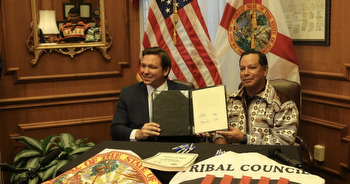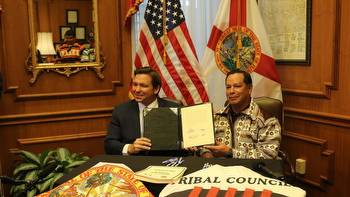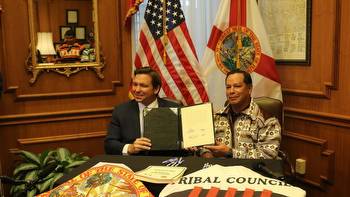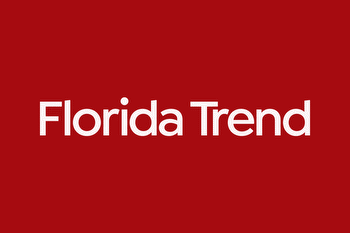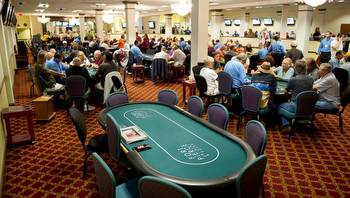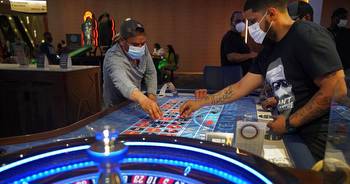Gov. DeSantis signs series of gambling measures
Gov. Ron DeSantis has signed into law a series of gambling-related measures approved by state legislators during a special session held earlier this month.
One of the bills (SB 2-A) authorized a 30-year gambling deal, known as a “compact,” inked by the governor and Seminole Tribe of Florida Chairman Marcellus Osceola Jr. in April. Under the agreement, the tribe promised to pay the state $2.5 billion over the first five years of the deal.
The compact also opens the door for sports betting in Florida by having the Seminoles serve as the state’s hub for sports betting, with pari-mutuel operators contracting with the tribe. The deal requires the Seminoles to contract with at least three pari-mutuels within three months after sports betting goes live and does not allow the tribe to launch sports betting until Oct. 15.
The U.S. Department of the Interior, which oversees tribal gaming, has 45 days following ratification of the compact to sign off on the agreement, reject it or allow it to go into effect without the agency’s approval. But perhaps more-difficult legal issues could center on a 2018 Florida constitutional amendment, known as Amendment 3, that required voter approval of gambling expansions in the state.
The amendment’s backers maintain that the legalization of sports betting off of tribal lands requires voter authorization, while the compact’s supporters contend that sports betting would not require a referendum because bets would be run through computer servers on tribal property.
DeSantis also signed a measure (SB 4-A) that creates a five-member Florida Gaming Control Commission, and a bill that could put an end to most live horse racing and jai alai games in Florida. The measure (SB 8-A) would allow pari-mutuel operators to drop harness racing, quarter-horse racing and jai alai but keep more-lucrative card rooms and, in Miami-Dade and Broward counties, slot machines.
After voter approval of a 2018 constitutional amendment, the new law could mean that only thoroughbred horse races will continue at Florida tracks. Lawmakers agreed to get rid of the requirement — a move known in the gambling industry as “decoupling” — for harness and quarter-horse tracks and jai alai frontons. The new law will take effect when the compact, which also allows the Seminoles to add craps and roulette to their gambling operations, goes into effect. ¦









